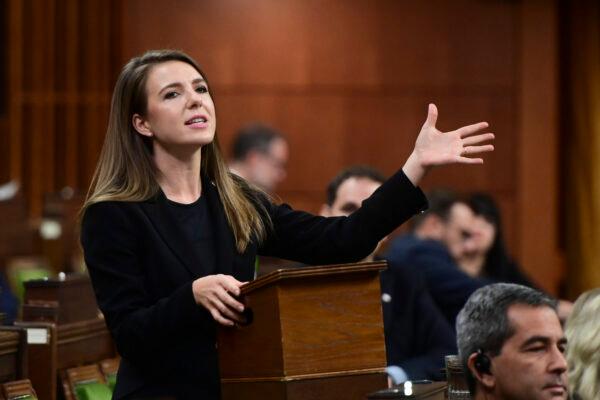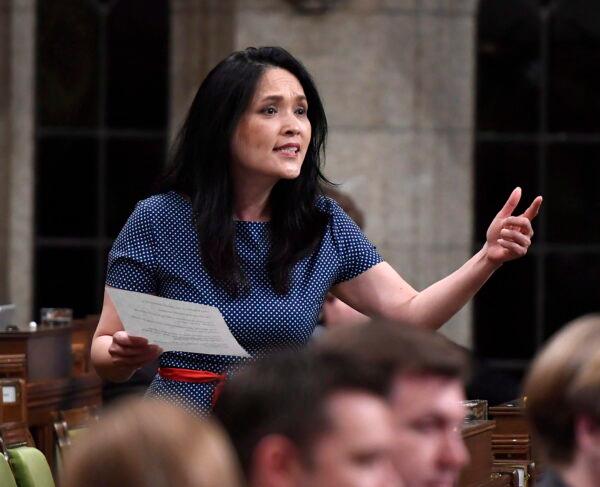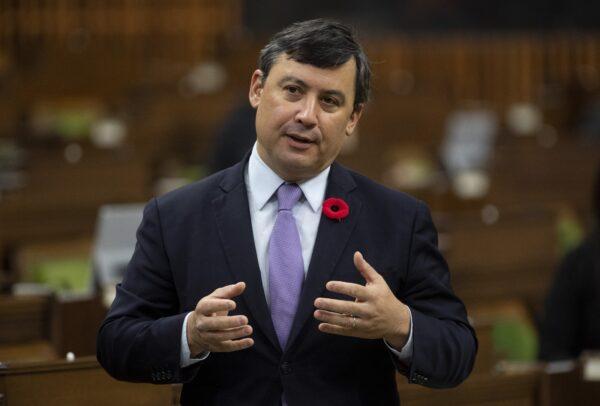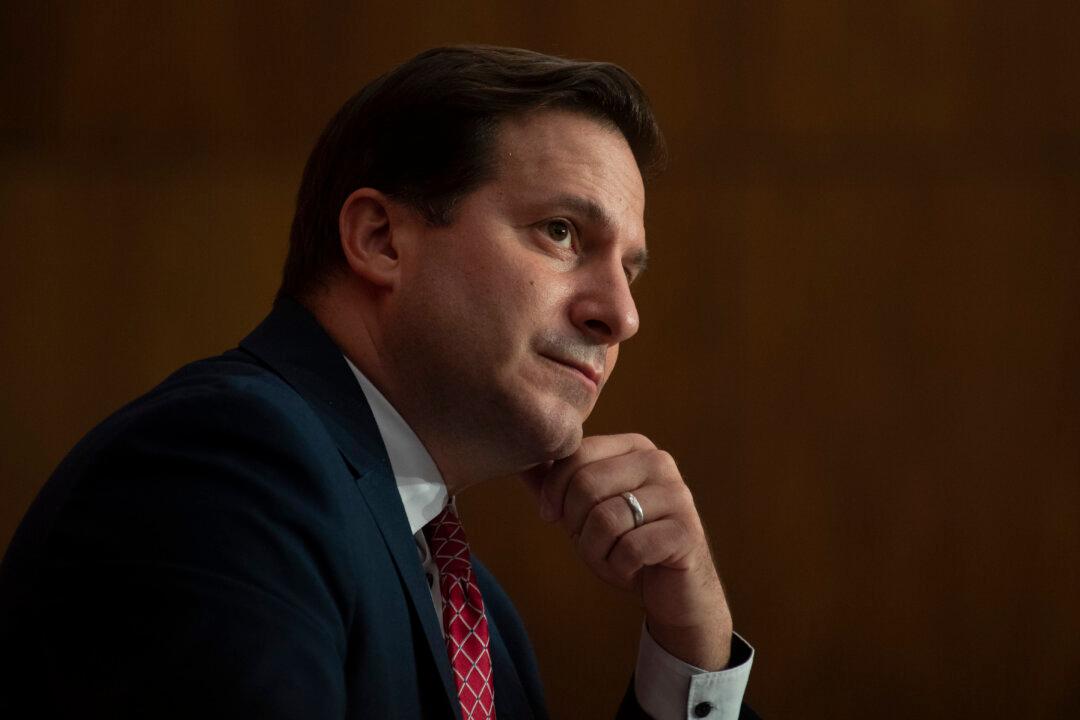The Canada-China committee pressed immigration minister Marco Mendicino on Monday on how he can prevent human rights violators in Hong Kong from entering Canada through the new immigration program for Hong Kongers, and allow pro-democracy Hong Kong activists not covered under the scope of the new measures to enter.
The new measures, introduced by Mendicino on Nov. 12, sought to attract students and youth from Hong Kong to come to Canada to study and work and eventually become permanent residents as part of Canada’s 2021-2023 Immigration Levels plan and response to the so-called national security law imposed in Hong Kong by the Chinese regime on June 30. But, some members of the Canada-China committee saw gaps and loopholes in the new program.

Conservative member of Parliament Raquel Dancho asks a question during question period in the House of Commons on Parliament Hill in Ottawa on Oct. 2, 2020. Sean Kilpatrick/The Canadian Press
Conservative MP Raquel Dancho raised her concern that the new immigration program could be misused by agents of the Chinese Communist Party (CCP) in Hong Kong to enter Canada.
“The world has witnessed the livestream video of the brutal response to pro-democracy demonstrations in Hong Kong by the Hong Kong Police Force, who has been accused of widespread human rights abuses by Amnesty International and Human Rights Watch since the 2014 Umbrella Movement. We also know that Chinese communist troops of the People’s Liberation Army are stationed in Hong Kong and are prepared to oppress any dissent,” Dancho said.
“Are you planning to prohibit any members of the Hong Kong Police Force and the People’s Liberation Army from immigrating to Canada under your new immigration announcement parameters or otherwise?”
Mendicino replied that in terms of admission to Canada, “we have a rigorous process when it comes to screening, but no one will be disqualified by virtue alone of being charged under the national security law or for committing any conduct that is not recognised under Canadian criminal law.”
When asked by Dancho if he has revoked or denied any immigration visa from individuals known to be agents of the CCP who engage in intimidation, threats, and coercion against pro-democracy Chinese Canadians, Chinese, and Hong Kong nationals living in Canada, Mendicino said “we’ve got a public safety apparatus that actively investigates all of them and we take appropriate actions where necessary, it would not be appropriate for me to comment on any investigation.”
“Protesters in Hong Kong have been charged for example, with rioting, unlawful assembly, and uttering seditious words, all three of these laws are laws in Canada. So as a result, and as for per remarks just now, will these protesters be denied entry into Canada?” Dancho asked.
“All I can do again is reiterate what the principle is, but it is not for me to adjudicate that admissibility screening,” Mendicino replied, adding that it is the public safety branch that will perform the screening.

NDP MP Jenny Kwan asks a question during Question Period in the House of Commons on Parliament Hill in Ottawa on May 25, 2018. Justin Tang/The Canadian Press
New Democrats MP Jenny Kwan questioned Mendicino whether “Hong Kong protesters arrested or facing rioting or illegal assembly charges prior to the passage of the national security law are not grounds for inadmissibility?”
Mendicino repeated that no one will be inadmissible if charged under the National Security Law or have not committed any crime known to Canadian law, which Kwan countered that his answer did not provide any clarity to give Hong Kongers the assurance they need.
Kwan also asked if Mendicino is willing to initiate a special refugee measure for people who are facing imminent risk of persecution in Hong Kong, but do not qualify under the new program.
In response, Mendicino said that he has added “additional allocations for refugees” in his announcement before. But Kwan argued that those people “can’t get to Canada to apply for asylum” and “if you do not create a special refugee stream, they cannot access it.”

Conservative MP Michael Chong rises during Question Period in the House of Commons in Ottawa, on Oct. 30, 2020. Adrian Wyld/The Canadian Press
Conservative MP Michael Chong followed up on Kwan’s assertion about the challenges faced by people wanting to get out of Hong Kong.
“Some individuals who wish to leave Hong Kong face exit control. All individuals leaving Hong Kong face exit controls, and some of those individuals have been denied exit. For example, some of them have had their passports taken away from them. Is Canada prepared to issue temporary resident permits or other travel documents to those individuals if necessary?” Chong asked.
Mendicino replied the Consul General and staff in Hong Kong would “facilitate where they can and where eligible and as long as they meet admissibility requirements.”
Chong said that Mendicino’s new immigration measures don’t capture all the scenarios that the Hong Kongers faced, saying there isn’t much flexibility for those who wish to leave Hong Kong “who find themselves in these unique circumstances as a result of the imposition of this draconian national security law.”





